#homeric hymns
Text
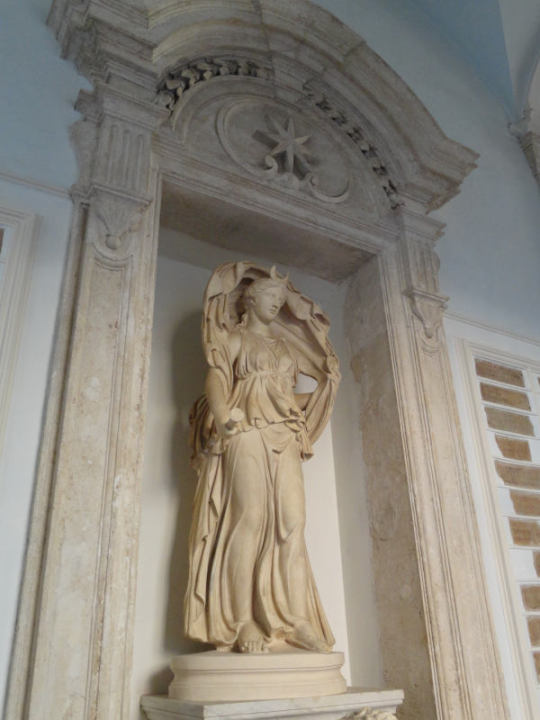

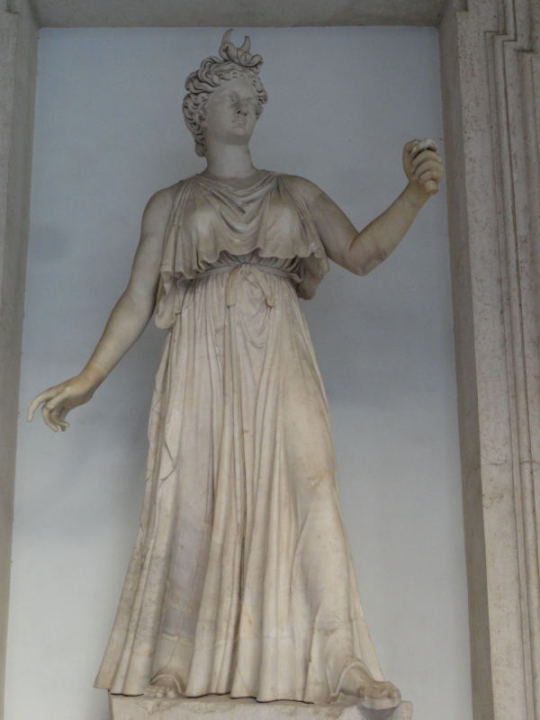
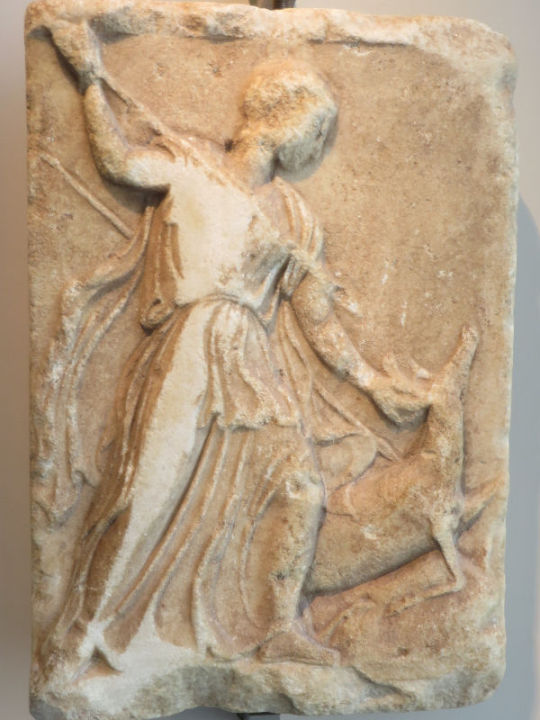



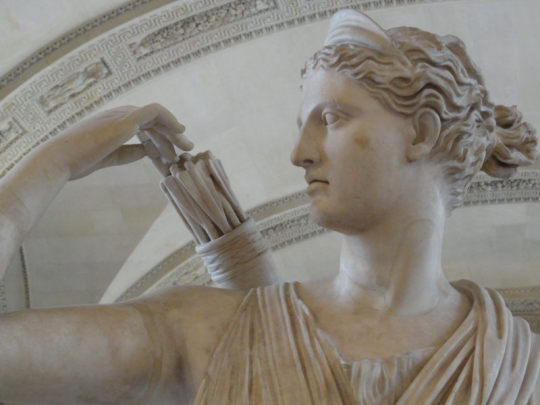
Ἄρτεμις / Diana
#dark academia#dark acadamia aesthetic#grey academia#classic academia#classical studies#classics#sculpture#museum photography#ancient greece#rome#poetry#homeric hymns#artemis#diana#greek mythology#classical mythology#mythology#ἐποίησα
440 notes
·
View notes
Text

Apollo and Diana by Giovanni Battista Tiepolo
"Muse, sing of Artemis, sister of the far-shooter, Parthenos the virgin who delights in arrows, who was fostered with Apollon.
She waters her horses from Meles deep in reeds, and swifty drives her all-golden chariot through Smyrna to vine-clad Klaros where Apollon god of the silver bow, sits waiting for far-shooting delighter in arrows.
And so hail to you, Artemis, in my song and to all goddesses as well."
- Homeric Hymn 9 to Artemis (trans. Evelyn-White)
#helpol#artemis deity#apollo#apollon#apollo deity#artemis worship#artemis devotion#apollo worship#apollo devotion#homeric hymns#hymns#hellenic polytheism#deity work#deity worship#polytheism#prayers#deity prayers#quotes#artwork#artemis
314 notes
·
View notes
Text

"Demeter Enraged"
Digital
11" x 17"
A sharp pain seized Demeter’s heart,
and she tore the headband out of her flowing, divine hair,
And threw a dark cloak over her shoulders.
Like a bird of prey she sped,
Over solid earth and fluid sea,
Searching.
Get prints here >> https://society6.com/art/demeter-enraged?utm_campaign=2574&utm_source=sharedlink&utm_medium=social&utm_content=ddp_from_artist_studio&fbclid=IwAR2Km5bZMiHQulvAXaiPMQavAbrCLi4ceQFNsDk-uAj3ueZm6T852HKNjAA
#hellenic pagan#pagan#pagan witch#demeter#goddess#homeric hymns#pagan art#paganism#hellenism#hellenic polytheism#theoi#greek myth#art#digital illustration
1K notes
·
View notes
Text

Here’s a more accurate representation of this year’s solar Eclipse! Artemis and Apollo are (hopefully) getting along well enough.
#artemis#apollo#artemis deity#apollo deity#sun#moon#solar eclipse#eclipse#art#artists on tumblr#drawing#greek mythology#tagamemnon#iliad#trojan war#the iliad#the odyssey#odyssey#greek gods#greek god#homeric epics#homeric hymns#olympians#olympus#sketches#sketch#doodle
165 notes
·
View notes
Text
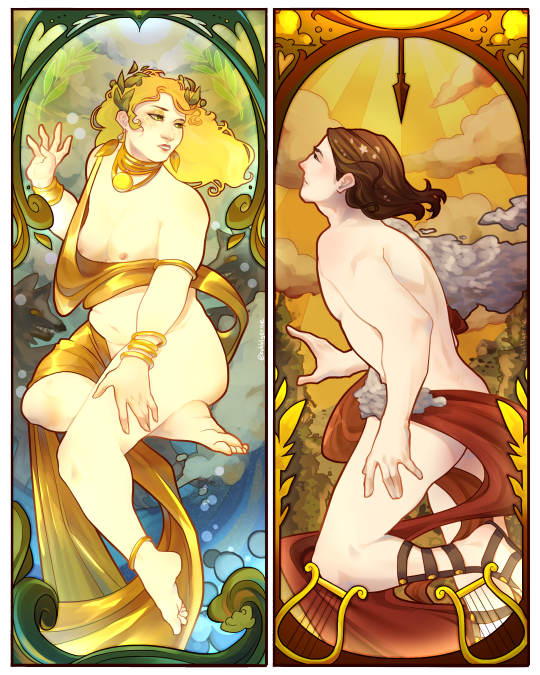
Aesta and Tui-El, but drawn as Aphrodite and Anchises :,> this was a crazy project to work on and Im so happy with how it turned out!! It's based on a translation of the Homeric Hymn to Aphrodite!
art tag // commission info
#sunshan draws#alphonse mucha#aphrodite#art nouveau#dnd#homeric hymns#dungeons and dragons#character illustration#illustration#fantasy#sketch#digital art#digital painting#digital sketch#art#doodles#oc#ocs#concept art#character design#mucha#greek mythology#greek gods#anchises
235 notes
·
View notes
Text
Fundamental sources
Greek mythology is recorded in numerous texts, covering multiple centuries, locations, traditions and variations. Many of these ancient sources are lost to us, or fragmentary. This leaves us with an incomplete (albeit vast) and oftentimes incoherent collection of written sources on which to base my own work.
The sources which are considered by the ancient Greeks themselves as foundational and central to Greek mythology are essentially : the early Greek epic poets (amongst which is, of course, Homer), Hesiod (author of the famed Theogony, not counted as an epic poet) and the Homeric Hymns (called Homeric because they are written in the same language, style and meter as the Iliad and Odyssey). These texts were written down between the 8th and the 5th centuries BC, and are based on oral material that goes much further back.
Of the early epic poems, only the Iliad and the Odyssey attributed to Homer still survive, considered by the ancient Greeks as the pinnacle of their literature. Of all the other epics, only fragments and (if we're lucky) summaries remain. The Trojan Cycle was made of the following works :
The Cypria, which describes the origin and early years of the Second Trojan War
The Iliad, which tells of the wrath of Achilles and the death of Hector
The Aethiopis, which describes the intervention of Amazons and Ethiopians in the war, and the death of Achilles
The Little Iliad, a dense work that covers events from the funeral of Achilles to the episode of the Trojan horse
The Sack of Troy, which, as its title suggests, tells the events from the Trojan horse to the desctruction of the city and the anger of Athena
The Return from Troy, in which the Greek heroes return home, with tragic developments, such as the murder of Agamemnon and the revenge of Orestes
The Odyssey, tells the return of Ulysses, the longest and most adventurous return of all Greek heroes
The Telegony, that covers further adventures of Ulysses until he is killed by Telegonus, his son by Circe
To this we can add a Theban Cycle (covering the life of Oedipus, both Theban Wars and the revenge of Alcmaeon) and a few additional epics (including a Titanomachy I would have loved to read). Chances are high that there were many more, lost to us even by name.
Hesiod left us three complete works and a number of fragments, the most important of which is the Theogony, which describes how the universe began and the early history of the gods.
Lastly, the Homeric Hymns, of which three may be later additions, are poems or songs that praise the gods, each hymn being dedicated to a specific god.
In the context of my work, these sources will be taken as having the highest authority. Later sources will be accepted if they provide additional material that completes or extends the earlier texts, or if they help resolve an obvious inconsistency or impossibility.
#troy#ancient greece#classical mythology#greek gods#greek heroes#greek mythology#mythology#trojan war#thebes#epic cycle#homer#hesiod#homeric hymns
59 notes
·
View notes
Text
I shall recall, nor let me forget, Apollo who shoots from afar,
At whom the gods in Zeus's dwelling tremble as he goes.
μνήσομαι οὐδὲ λάθωμαι Ἀπόλλωνος ἑκάτοιο,
ὅντε θεοὶ κατὰ δῶμα Διὸς τρομέουσιν ἰόντα
-Homeric Hymn to Apollo (no. 3), lines 1-2
#quote#quotes#classics#tagamemnon#Greek#Greek language#Ancient Greek#Ancient Greek language#translation#Greek translation#Ancient Greek translation#poetry#Homeric Hymns#Greek religion#Ancient Greek religion#Hellenic polytheism#Apollo#Ancient Greece#Archaic Greece
121 notes
·
View notes
Text
Hera and Athena’s relationship is one of the most interesting and underrated in Greek mythology bc multiple sources say different things about their relationship that it could go either way.
In the Iliad and Argonautica they worked together, but with Heracles they worked against each other. According to Hesiod (and many others) Hera became jealous of Zeus when he “gave birth” to Athena, but Imagines (work by Philostratus) she rejoiced as if Athena was her own daughter.
Did they love each other but occasionally worked against each other? Did they hate each other but sometimes work together when their interests align? Is it a mix of both? Their relationship is complicated and that’s why I find it so fascinating.
#greek mythology#greek pantheon#hera#greek goddess#hera goddess#ancient greek mythology#athena#hera deity#athena goddess#athena goddess of wisdom#Argonautica#the iliad#homeric hymns
88 notes
·
View notes
Text

Diana Cazadora by Arturo Michelena
"Artemis with shafts of gold loves archery and the slaying of wild beasts in the mountains, the lyre also and dancing and strong-voiced song and shady woods and the cities of upright men."
- Homeric Hymn 5 to Aphrodite
#homeric hymns#hymns#artemis#artemis deity#artemis goddess#artemis devotee#artemis devotion#diana deity#diana devotee#helpol#hellenic polytheism#polytheism#deity work#deity worship#deity prayers#prayers#quotes#artwork
79 notes
·
View notes
Text
Persephone's Abduction
"Persephone went willingly! Just check the oldest myth." - one too many a person on tiktok this morning.
Alright, I will. I'll use the Homeric Hymn to Demeter (7th century BCE) for you.
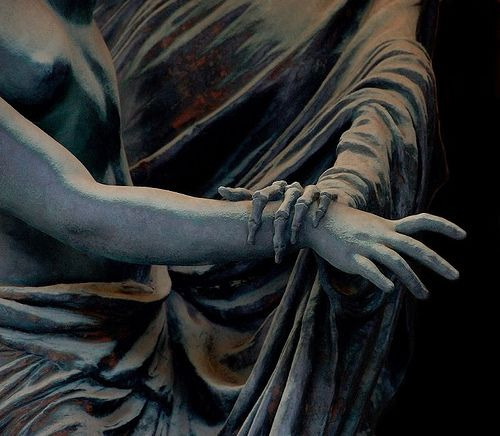
"[..] but broad-pathed Earth gaped wide
On the Nysion plain where the lord, the Receiver of many, rushed forth
With his deathless horses, Kronos' son who has many a name.
He seized her against her will, and aboard his golden car
Carried her off, lamenting; she uttered a piercing scream"
(line 16-20)
"When the maiden shrieked in appeal to her father"
(line 27)
"While the goddess [Persephone] viewed earth and starry sky, and the strong-flowing sea
Teeming with fish, and the rays of the Sun, she still hoped to behold
Her dear mother again, and the tribes of gods eternal in race;
So long did hope soothe her mighty mind despite her grief."
(line 33-36)
"Sun, [Helios], as a god for a goddess [Demeter] show your regard for me,
If ever by word or deed your heart and spirit I pleased.
The daughter whom I bore, my sweet offshoot of glorious form,
I heard through the murmuring air giving vent to an anguished cry
As though overpowered by force, yet caught no glimpse with my eyes.
[...]
Who took her without my consent against her will by force
And vanished -"
(line 64-72)
"And the lord in his [Hades'] halls he [Hermes] discovered seated upon a couch,
And he had his revered spouse by him, though much against her will,
Since she longed for Demeter, her mother -"
(line 43-45)
"She [Persephone] quickly leaped up in delight, but secretly, glancing round,
He [Hades] gave her to eat a pomegranate's honey-sweet seed, so that there
By revered Demeter the dark-robed she would not for ever stay."
(line 73-75)
"I [Persephone] at once leaped up in delight, but Hades secretly put
A food as sweet as honey, a pomegranate's seed, in my hand
And using violence forced me to taste it against my will"
(line 412-412)
Photo credit here.
#can you tell i'm tired?#worship hades and persephone together - see them as a happy couple - that still does not deny what's in the myths.#you can't rewrite it and 'correct' people on the 'true story'.#it's about grief and forced marriage and being torn from your mother. it's about demeter and persephone.#persephone deity#persephone worship#demeter deity#demeter worship#hades deity#hades worship#demeter devotee#homeric hymns#kore#hellenic polytheist#eleusinian mysteries#<- as this hymn is the foundation myth of that cult and what i reconstruct
736 notes
·
View notes
Text


On the Homeric Hymns to Demeter (i) // Introduction, Charles Boer's translations of the Homeric Hymns, 1987
Everyone is hurting now that Demeter is mad, and that seems to be Her purpose — there is no food to be had from Her earth. A deal is made and She gets Her way, She gets Her daughter back, but not before Persephone is given a pomegranate seed to eat by Her new husband, requiring Her to return to Hades for one winter season each year, when Demeter will again withhold Her crops. Some might say Hades is too generous; most husbands would not go so far to comfort the pathology of their mothers-in-law. But it is Demeter's point of view that we must take through this Hymn, Her feelings, Her attitudes, Her sufferings that we share.
To the extent that we share them, we are Her followers. She gives our suffering meaning. She shows us the way
#demeter#charles boer#homeric hymn to demeter#hymns#homer#quotes#devotional poetry#helpol#hellenic polythism#kore#persephone#aidoneus#hades#greek gods#theoi#polytheism#paganism#homeric hymns
115 notes
·
View notes
Text
If I see one more "feminist retelling" of Hades&Persephone that paints Demeter as the villain I will commit manslaughter :)
#the original is feminist#that's like the whole point#let's just take the homeric hymn to demeter and turn it around on her i guess#tell me you have no understanding of the cultural context without telling me#classics#hades and persephone#demeter#hellenic pagan#homeric hymns#greek mythology
23 notes
·
View notes